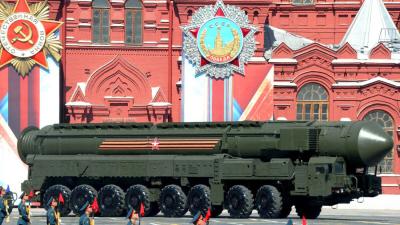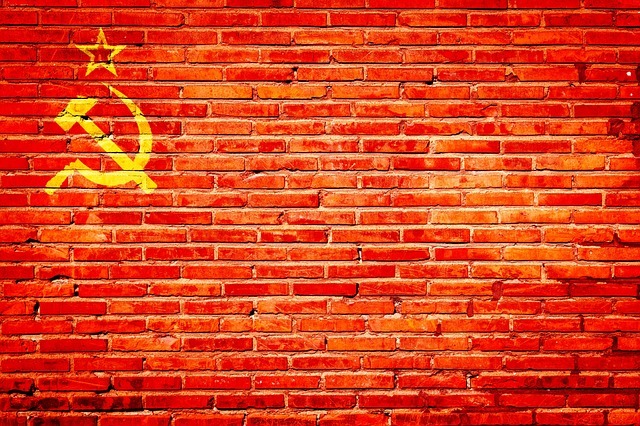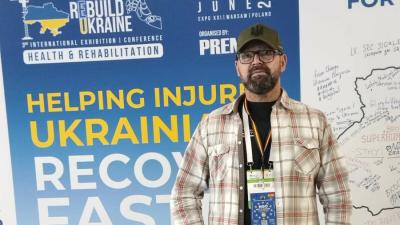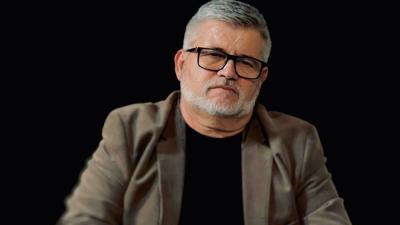“Fear is Kremlin’s favourite argument and the one most used by Russian propaganda”: An interview with Oleksandr Shulga
Dr. Oleksandr Shulga is the director of the Institute for the Study and Analysis of Russian Conflicts (IKAR), the only Ukrainian institution that sociologically monitors what is happening in Russia and currently focuses on analysing Russian propaganda through what is published in Russian media and social networks. We talk about the latest elections in Georgia and Moldova, Donald Trump’s victory and the situation in Kursk.
Álvaro Peñas: We have had elections in Georgia, Moldova and the United States, what narratives has Russian propaganda employed in all these cases?
Dr. Oleksandr Shulga: The most common approach is the use of the fear of war, which Russian propaganda repeatedly uses as a tool to influence these countries: the fear of a repeat of the 2008 war in Georgia, the 1992-1994 war in Moldova, and the fear of nuclear war in the US and throughout the West. In these countries, this narrative has also been exploited by some of the parties contesting the elections, for example, Georgian Dream has explicitly used it by publishing images of destroyed Ukrainian cities. In Moldova, the same thing happened: the election of Maia Sandu and the change of the constitution will lead to war. Another strategy is Euroscepticism, presenting Russia as a more reliable and cheaper supplier of gas and electricity than the EU; in this narrative, quality of life will fall if there is a rapprochement with the West. The narrative has also been used that a good relationship with the Kremlin would allow the reintegration of Transnistria into Moldova and Abkhazia into Georgia, something that would be impossible if pro-European candidates were elected.
Maia Sandu’s victory was bad news for the Kremlin. The same narratives were used against Moldova that were used against Ukraine, from Nazism to the persecution of the Russian minority, so what do you think will happen now?
The problem for Russia is that in Moldova, unlike in Georgia, they cannot use brute force or the threat of it. Of course they will try to influence internal politics through threats or bribes. Indeed, there were many reported cases of vote-buying for the pro-Russian candidate in the elections; bribing local elites in such a small country does not require significant effort for Russia. But the point is that Ukraine cannot allow Russia to interfere, because we are talking about our rearguard, which borders us to the west and south.
After the allies allowed Western missiles to be used on Russian territory, fear of war is the order of the day with Putin’s new nuclear threats.
Yes, fear is Kremlin’s favourite argument and the one most used by Russian propaganda at the moment. If war is to be avoided, peace must be sought, which in reality means stopping aid to Ukraine and lifting sanctions, i.e. going back to business with Russia. This is the same discourse that is repeated by governments like the Slovakian or Hungarian governments, which of course make it clear that they do not agree with what Russia is doing in Ukraine, but that they are defending their interests and only seeking peace. This is an increasingly common narrative in national elections in European countries.
Russian television channels and social media messages insist on the idea that support for Ukraine will bring war to the countries that support it, or force them to send soldiers, as in the case of the United States. Now this discourse has been radicalised again, because it is not the first time, and the places where their nuclear missiles would fall are being shown.
Trump has been presented as the most pro-Putin candidate, but Russian television does not seem to have a good memory of his first term, and the reaction to his victory was to show old naked photos of his wife. What is the reason for that reaction?
The reason is that they had a negative experience with Trump. In 2016 they celebrated his victory with champagne, thinking that it would be very easy to make a deal with him and fool him as the stupid American they thought he was. They failed, and the only thing they know about Trump now is that they know nothing about Trump. If Kamala Harris had won the election, they could calculate with a fair degree of accuracy what she would do in the next few months, but you can’t predict what Donald Trump will do. Moreover, during his time in office he did things that Russia did not like at all, such as attacking the Wagner mercenaries in Syria on his direct orders. And it was he, not Biden or Obama, who delivered javelins to Ukraine. With Trump, Russia’s chances of getting a good deal may be 50-50, and that is why we see them throwing soldiers into the meat grinder to create the image that Russia is moving inexorably forward and winning the war.
However, most of the Western media have portrayed Trump’s victory as a disaster for Ukraine.
There is a saying for that: it is better to have a horrible end than an endless horror. Neither Russia nor Ukraine knows what Donald Trump is going to do. Ukraine has been very patient with Biden’s hesitations and vacillations, while we pay the highest price. Aid has been slow and subject to the Democrats’ political calculations: now a handful of missiles, then a handful of tanks, then a handful of F16s, and so on. I don’t want to sound ungrateful, but much more could have been done and, above all, much more quickly. We have been given weapons so that we would not lose the war, but not to win it, and while we are not losing and we are not winning, we continue to pay the highest price every day; civilians are dying every day and that cannot become a routine. With Trump there is a chance that this will change once he realises that this is what is best for the United States and for the rest of the civilised world.
You mentioned earlier how Russia is trying to make progress on the battlefield, but Kursk seems to have become Putin’s Achilles heel, what does Russian propaganda say about that?
Russian propaganda is trying to shift the focus away from what happened in Kursk and is focusing on three issues. One is the advances in the Donbass, such as the capture of Vuhledar, a small town of 14,000 people, in October, which was presented as a great victory and even mentioned by Putin on several occasions. Another issue that was often repeated in the propaganda was the BRICS meeting in Kazan, which was presented as proof that Putin has friends and that Russia is not isolated and has the support of the majority of people in the world. And the last issue was migration, showing raids on illegals and deportations. Russia needs workers for its economy, especially at a time when front line casualties and conscription mean a shrinking workforce, but in the event of military failure it can always turn to the ‘enemy within’ and in the absence of any real opposition immigrants are the only ones who can fill that role.
Is there any reaction to Russia's failure to dislodge the Ukrainian army from Kursk?
The Kursk failure has been artificially muted on Russian channels, but we have evidence that it is causing discontent. For example, in October, in a sample of 200,000 messages mentioning Putin, 57 per cent were negative about the Russian leader. The same was true in September, when negative comments reached 60 per cent. Russians are afraid to protest against those in power, but they can still show their discontent in this way.
Do you think this discontent will increase in the coming months?
My prediction is that this discontent will increase; the Kremlin will try to reduce it by talking about nuclear war, victories or presenting the end of the war as a geopolitical victory, but it does not seem that this will change the trend - on the contrary. Putin’s latest threat to Ukraine and the West with the use of the ‘Oreshnik’ missile could have a more negative effect than inflation and high prices, because it could spread the fear of nuclear war among Russians themselves. In a similar way to what is happening with forced mobilisation, which, as several polls have shown, generates enormous opposition among Russians, Russians do not want to face a possible nuclear threat from which they have nothing to gain. I believe that discontent will grow and Putin's legitimacy will deteriorate.
Read also
José Manuel Candón: “Right now, Ukraine is the most heavily mined country in the world”
Those at the front are defending the freedom of those at the rear, and if the enemy should succeed in curtailing the freedom of the rear, then he would be winning.
Álvaro Peñas
Carolina Barrero: “In Cuba there is no food or medicine, but the regime builds hotels rather than hospitals”
Interview with Carolina Barrero, activist for the defence of human rights in Cuba, self-exiled in Spain since February 2022.
Álvaro Peñas
“The best weapon against propaganda is common sense and intuition”: An interview with Jorge Gómez
Jorge Gómez is a Navy officer in Reserve status and has worked in the field of intelligence during his time at CESID/CNI (National Intelligence Center), from 1992 to 2018, being a specialist in team management, crisis management and Human Sources Intelligence (HUMINT).














Comments (0)